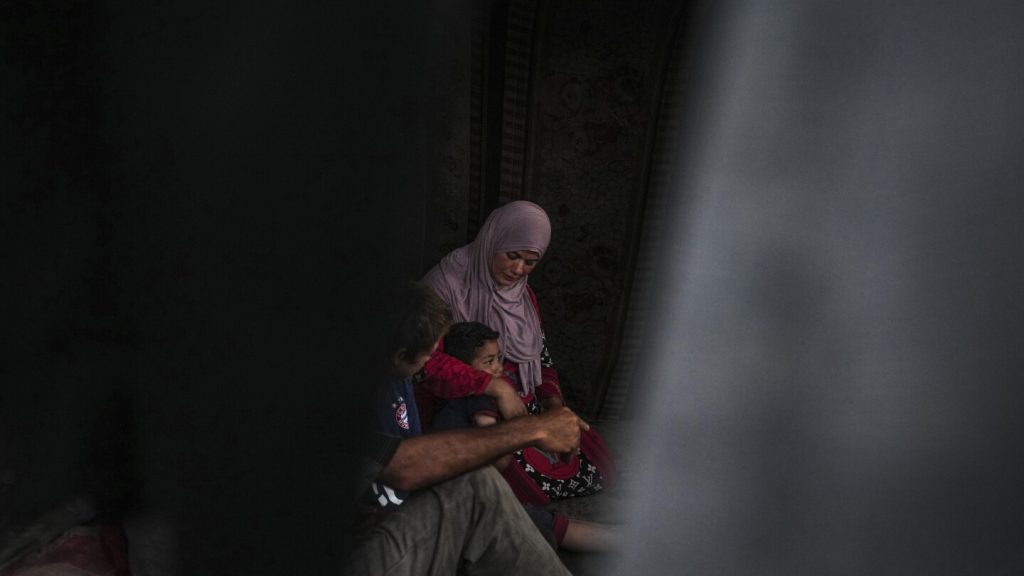The escalating conflict between Israel and Hamas has left many Palestinians in the Gaza Strip struggling to celebrate the upcoming Muslim holiday of Eid al-Adha. After eight months of devastating war, families are facing food shortages, lack of livestock, and financial hardship, leaving many unable to afford traditional holiday feasts, new clothes, and gifts for children. The war has led to widespread destruction, displacement, and loss of life, with no end in sight for the people of Gaza.
The Feast of the Sacrifice, commemorating Prophet Ibrahim’s willingness to sacrifice his son, is typically a time for joy and celebration. However, in Gaza, where poverty and isolation were already rampant, this year’s Eid al-Adha will be marked by despair and hardship. The destruction of Gaza’s agriculture and food production has left many reliant on humanitarian aid that is hindered by Israeli restrictions and ongoing violence. The war has taken a devastating toll on the population, with over 37,000 Palestinians killed and nearly half the population facing the threat of starvation in the coming weeks.
The closure of the Rafah crossing into Gaza by Egypt has further compounded the crisis, cutting off the only route for people to enter or leave the territory. This means that Palestinians in Gaza will be unable to make the annual Hajj pilgrimage that precedes the Eid celebration. Many displaced families, now living in tents, are uncertain about the fate of their homes and livelihoods, unsure if they will ever be able to return or rebuild in the aftermath of the war. The ongoing conflict has left people with little hope for a better future.
The severe shortages of livestock and feed in Gaza have led to skyrocketing prices for meat and livestock, making it unaffordable for many families. With a kilogram of meat costing around $50 and a live sheep priced at $1,300, the traditional Eid feasts are out of reach for most Palestinians. Local farmers, facing challenges due to the blockade and destruction of farms, have been forced to close their businesses or repurpose their land for other uses. The lack of resources and opportunities has left many families struggling to survive.
Displaced Palestinians, who once worked in industries like meat production and agriculture, are now unable to provide for their families as they did before the war. The loss of income, combined with the destruction of homes and livelihoods, has left many families without food, clothing, or basic necessities. As they prepare to mark Eid al-Adha in the midst of war and hardship, Palestinians in Gaza are faced with the harsh reality of their current situation. Despite their resilience and determination to celebrate the holiday, the challenges they face are overwhelming, with no immediate solutions in sight.
As the region continues to grapple with the aftermath of the war, the people of Gaza are left to confront the harsh realities of their daily lives. The ongoing conflict between Israel and Hamas has left a devastating impact on the population, with no clear path forward for those struggling to survive. As Muslims around the world prepare to celebrate Eid al-Adha, the people of Gaza are left to wonder when they will be able to rebuild their lives and find peace once again.


